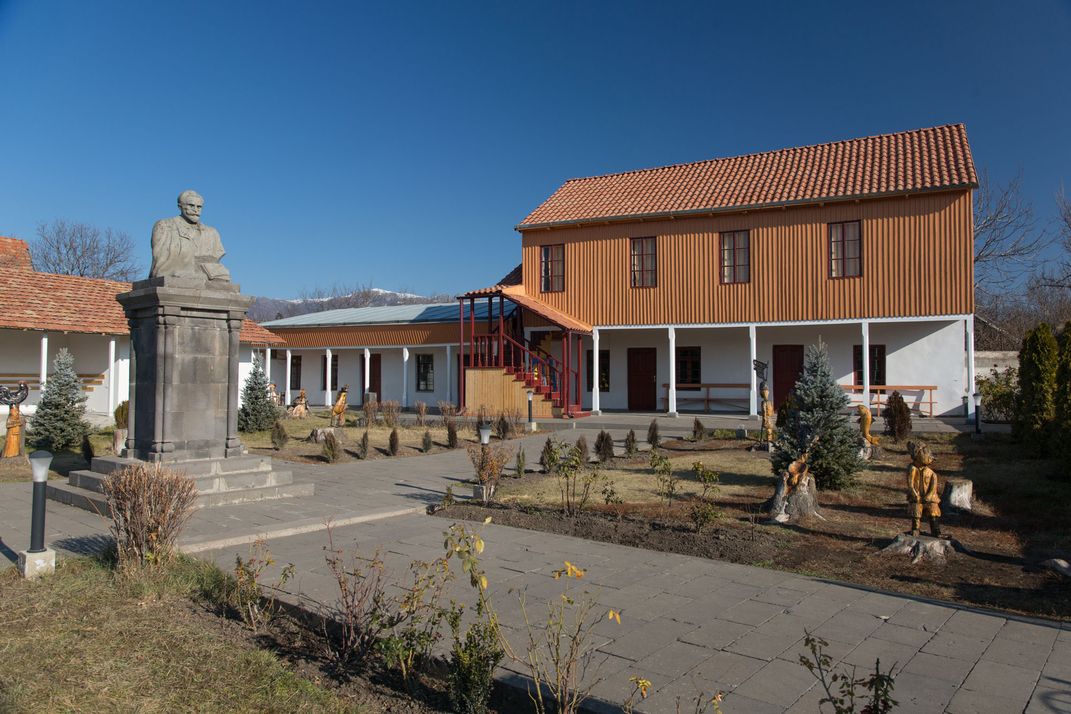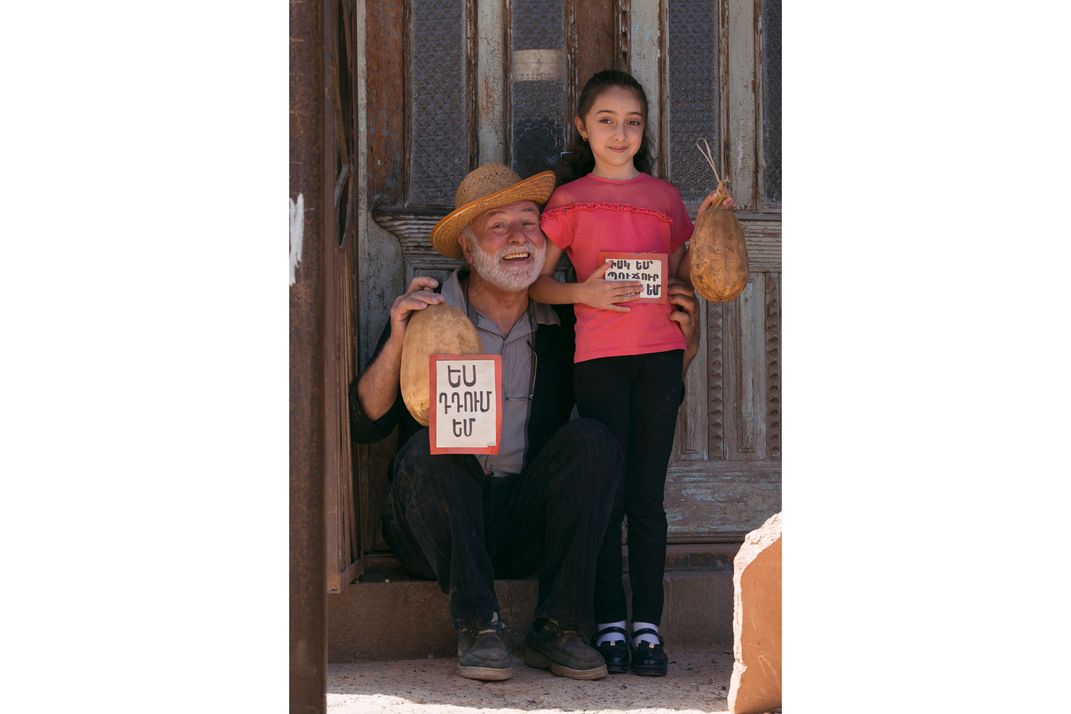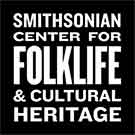SMITHSONIAN CENTER FOR FOLKLIFE & CULTURAL HERITAGE
Traveling with the Little Ones: Entertainment in Armenia
No matter our age, we all like to travel. But let’s admit it, traveling with kids can be challenging.
/https://tf-cmsv2-smithsonianmag-media.s3.amazonaws.com/blogging/featured/Children-Learning-to-Weave---My-Armenia-Program)
In the summer of 2020, the Center for Folklife and Cultural Heritage’s My Armenia Program partnered with Armenian publication Yerevan Magazine to publish a special issue highlighting community-based cultural heritage tourism in the country. Over the next few months, the Center will publish English translations of the articles to Smithsonian Voices.
During this difficult time in the region, we hope these stories shine a light on the resilience of the Armenian people by showcasing their vibrant, diverse cultural heritage.
No matter our age, we all like to travel. But let’s admit it, traveling with kids can be challenging. As good parents, we want them to have fun and to learn something while we explore new places. In collaboration with Yerevan Magazine, we prepared a collection of fun activities that you can experience with kids in Armenia while teaching them something new about our cultural heritage.
Spinning Top (Frrik) Skills, Gyumri, Shirak
The frrik, or spinning top, used to be something every child knew. Today, it is an experience nearly lost in the depths of history. In 2017, Arsen Vardanyan and Gagkik Mkhitaryan, friends from Gyumri, got together around the idea of reviving the forgotten games and traditions of their city. The spinning top is certainly one of them. Arsen and Gagik spare no effort to ensure a childhood full of traditional games for kids and to make Armenian brands popular throughout the world. Arsen is always happy to welcome children and can help them not only in selecting a spinning top, but also in learning the tricky art of throwing it.

Pottery, Areni, Vayots Dzor
Adults might get to enjoy wine in Areni, but what about the children? There is the studio Arhestanots, meaning workshop. Even the building itself is fascinating; it was a church in the 17th century, and in the Soviet years it was transformed into a cultural center and then a warehouse. It served as a café in the 90s, and in the summer of 2019 Arpine turned it into a workshop. Now she teaches pottery, painting, and crochet to children from ages 5 to 13.
All the experiences are connected with clay: making jewelry from pieces of clay, decorating a clay candlestick, and attending a pottery class. Arpine tells about the clay she uses in her work—where it comes from and how it differs from the clay of Areni and other places in Armenia.
Doll Making, Vayots Dzor
The Mosh Studio combines its founder Armine Aghajanyan’s love for Vayots Dzor’s beautiful landscapes and architecture. Visitors to her studio may take part in doll-making workshops. Dolls are a sort of dreamcatcher; making them is both simple and trendy.

House-Museum of Toumanian, Dsegh, Lori Region
Every child in Armenia is familiar with Toumanian’s fairy tales. That is why they will enjoy the writer’s house-museum. They can see the style of house where Armenia’s beloved writer lived, and how he drew inspiration from the natural beauty and domestic life around him.
Clay Painting | Hatsik Village, Shirak
It is one thing to make a jug from clay, but a totally different thing to illustrate the jug. The latter is no less alluring; and along with children from Hatsik village and Gyumri, you may participate in one of painter Gohar Petrosyan’s workshops in the village. Together with Gohar, children can learn to paint on clay or simply to paint, inspired by the rural scenes. You may also explore Gohar’s distinctive paintings and her clay statuettes with Armenian patterns.

Weaving and other Similar Crafts, Tavush
In 2017, the Tavush Diocese and the socio-educational center Arevik supported a group of women to come together and use their needlework, sewing, crocheting, and other skills to create a new source of income in Ijevan. The Telik Center offers needlework, carpet making, and miniature painting to teenagers; everyone chooses what they like most.
A New Level of Masonry, Vanadzor
Bogdan Hovhannisyan works in Vanadzor, where he continues the centuries-old tradition of khachkar art (cross-stone carving) together with his students in his workshop. Master Bogdan also creates book covers and decorative miniature paintings, which are inspired by the Matenadaran’s miniature painting collection. You can observe Bogdan’s creativity in the workshop or even try your own hand at stone carving, as well as purchase the works on display.

Taraz Photoshoot, Gyumri, Shirak
Image transformations are always amusing, and in the Zanan studio, adults and children may transform themselves into an image typical of old times. Visitors may be photographed wearing Armenian tarazes (national costumes) of different periods and different regions, as well as learn about the taraz culture and the traditions of tailoring and photography in Gyumri.
Stone Art, Shirak
Children will greatly enjoy this experience, which, at first glance, may seem designed more for adults. Because all the corners of Hovhannes Margaryan’s guesthouse are devoted to stone in some way, they demonstrate the richness, diversity, and beauty of tuff stone. Both adults and children may choose to create their own design of Mount Ararat. Different pieces of tuff are used in the inlay. The Master will show a larger sample of the design to inspire your own work, and will provide you with a flat stone to serve as the foundation for your creation.
